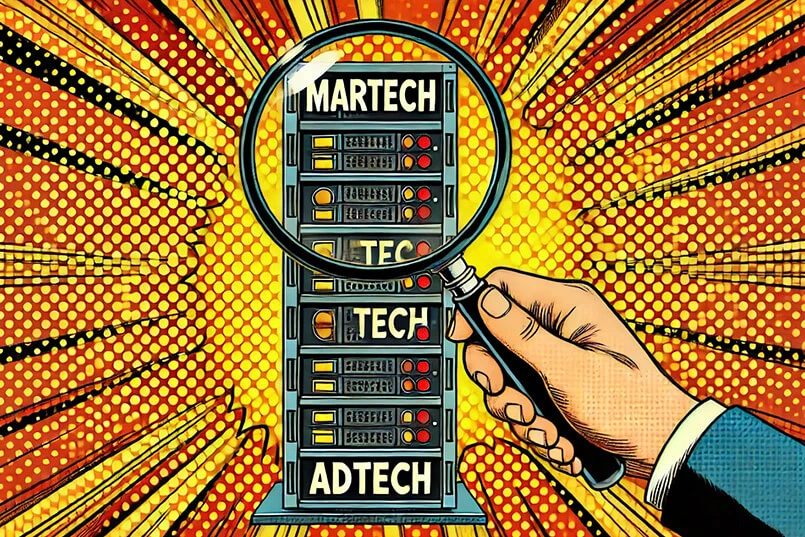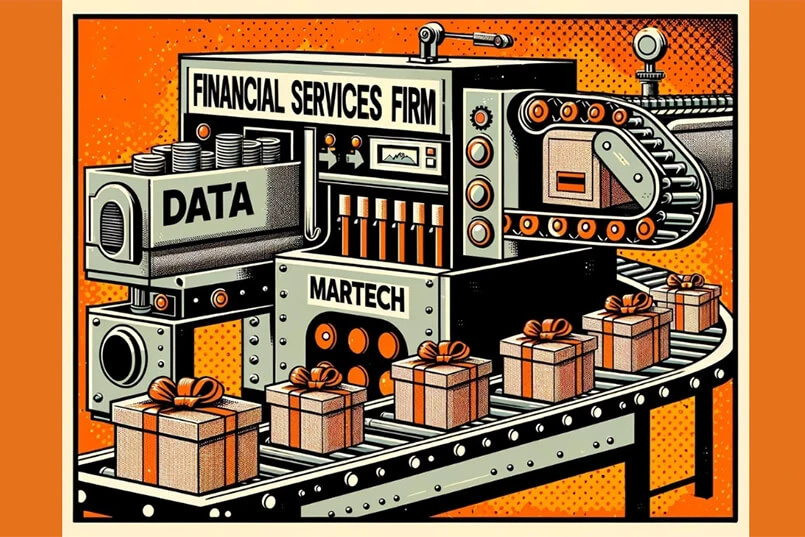Engagement Agreements are an effective way of defining the ways of working between advertisers and their agencies. One of the best times to undertake the process of defining the relationship and the expectations of both parties is at the beginning of the relationship, rather than waiting for things to either go wrong or for poor practices and misalignments to become major issues.
It is therefore interesting that many advertisers, having gone through an extensive selection process to select a new agency do not then embrace or implement a structured on-boarding process to establish the relationship quickly and efficiently.
It is understandable that having appointed a new agency many want to immediately get on with working together, but nevertheless there is still the need to successfully transition in the new agency and transition out the old. This transition process is important in setting up ways of working and establishes expectations on both sides to minimise the opportunity for misalignment and miscommunication.
Also the appointment of a new agency is not just about establishing a new relationship, but depending on the role of the new agency, it increasingly impacts on the way the roster of agencies work together. Changes in either the agency of record (AoR) or the lead agency or any one of the core strategic agencies can create changes in the way the marketers and their agencies work together.
Therefore the appointment of a new agency appears to be the ideal time to undertake the Engagement Agreement process as a way of re-aligning the roster and the new agency to the ways of working together.
Here are three case studies of ways the Engagement Agreement process have been used immediately on appointment of a new agency and where delays in establishing the ways of working have led to issues further into the relationship.
Case Study 1
Health Insurance – Engagement Agreement
Challenging Problem: With a major brand relaunch pending, the marketing team felt that the current agency, which had provided workmanlike consistency for many years, did not have the capability to deliver the strategic and creative work required to reposition the brand in the competitive market.
Having gone to market to select one of the high profile and highly credentialed creative agencies, they did not have the time to include the Engagement Agreement process to on-board the new creative agency. Now almost a year on and the relaunch done, the marketing team were wondering if they had made a mistake in choosing this agency.
Creative Solution: Having spoken with the marketing team and the agency it was clear that in the massive post pitch rush to develop the new campaign there was no time, but now post repositioning launch both sides were unsure of what was clearly wrong.
We recommended undertaking the Engagement Agreement process we had suggested almost a year earlier as a way for both parties to share their expectations and agree a solution.
Process: TrinityP3 had in-depth one-on-one interviews with key stakeholders in the marketing team and the agency team identifying the relationship and underlying process issues. These findings were shared with both the marketers and the agency and the agenda for the workshop developed and approved.
The workshop prioritised developing and agreeing processes and setting performance expectations in the Engagement Agreement. In the process the agency decided to make significant changes to the agency team as a way of creating a fresh start.
Timeline: The process took three weeks from the initial consultation and final agreed Engagement Agreement.
Result and feedback: The Engagement Agreement workshop was a challenge for both the agency and the marketing team. The initial pace of the repositioning brand campaign meant that the agency had a high level of access to the CMO on a daily or weekly basis.
Likewise the agency had the senior team, in fact the pitch team, working on the account too, even though they were told to include the team they were proposing to work on the account.
However, once the new position campaign was complete and ready to be launched the senior agency team and the CMO backed away from the day-to-day business. It appears this created a vacuum as neither the agency or marketing team had an agreed way of working to deliver the business as usual.
This was compounded by the fact that when either the agency team or the marketing team had issues, they would quickly escalate the problem or concerns to the management team and CMO. This quickly led to a perception on both sides that the agency was underperforming and the agency feeling that the marketing team were being unreasonable.
While the Engagement Agreement defined a way of working, the damage to the relationship was done, especially for the marketing team who felt that the agency escalation of issues from their marketing team to the CMO had undermined their roles within the marketing team.
The relationship lasted an additional six months before the marketing team dropped the agency from the roster.
Case Study 2
Insurance Company – Engagement Agreement
Challenging Problem: Following a pitch for a new creative agency, the marketing team agreed that after eight years with the past agency, the appointment of the new agency was a significant change in the roster of agencies.
It was also seen as an opportunity to review how they had been working with their agencies and ensure their current process is fit for purpose, especially with the recent increase in digital content as part of the marketing communications strategy.
Creative Solution: TrinityP3 proposed that within 30 days of appointment we would run an Engagement Agreement process with the new creative agency along with the other core strategic agencies on the roster.
Process: The Marketing Leadership Team provided a clear brief on what they wanted to achieve with the new agency and the roster. The agenda for the workshop was developed and shared with the agencies and a full day workshop was held off-site with the marketing team and the account management teams from the core strategic agencies.
The Engagement Agreement was developed in the workshop and shared with the agencies and marketing team for review. The new agency offered to design the Engagement Agreement into the visual document with illustrations, check lists and flow charts to make it more on brand and engaging.
Timeline: The process from the appointment of the new agency took twelve weeks including the workshop four weeks after the appointment and the Engagement Agreement was approved at six weeks with the agency taking an additional six weeks to design the Engagement Agreement into an orientation document for the whole team.
Result and feedback: Not only did the Engagement Agreement align the new agency to the expectations of the marketing team and the other agencies on the roster. But just as important, the new agency suggested some new ways and processes to the roster. These were raised in the workshop and discussed with the various stakeholder representatives and on mutual agreement included into the Engagement Agreement.
More than three years later the agency is no longer the new agency and the Engagement Agreement has been revisited on a number of occasions to review and update, as needs change to keep the terms of the agreement up-to-date and relevant.
Case Study 3
Consumer Package Goods – Engagement Agreement
Challenging Problem: With changes in the company strategy and the coming launch of a range of new products, the marketers wanted to ensure they had the most suitable agency fit for the task.
TrinityP3 ran an agency search and selection and process to appoint the new agency and offered to manage the Engagement Agreement workshops as part of the on-boarding process of the new agency. The process was delayed for a number of reasons for four months, during which issues appeared to arise in the relationship.
Creative Solution: Having offered the Engagement Agreement process at the appointment of the new agency, on hearing the relationship was already facing issues 4 months down the track, TrinityP3 recommended we not delay the process any further to reset the relationship and define the expectations of the marketing team and the agency.
Process: The workshop had been planned for several months and postponed for numerous reasons. A simple update to the terms and agenda of the workshop meant that it was held two weeks later.
The areas and processes reviewed including campaign management, annual planning, budgeting, and interestingly day-to-day interactions. This last one was raised by one of the Account Managers at the agency.
Timeline: The process took only four weeks from briefing to the delivery of an agreed Engagement Agreement, including the workshop and the review process.
Result and feedback: While the workshop defined the ways of working, as it has in many other workshops, this time the big insights came from the discussion on the day-to-day interactions.
The discussions revealed that because of the geographic distance between the client and the agency, many of these daily interactions were by email. It appears that face-to-face meetings became difficult to organise, as people were busy with many conflicting appointments. (Sound familiar?)
Many on the team had given up on telephone calls as often it led to leaving voice messages and non-returned calls. This was particularly evident for the agency account management team who found it difficult to reach the marketing team, who likewise felt too busy and time pressured to respond to the agency along with all their other commitments.
The effect was email had become the default way of working together, leading to all sorts of miscommunication and misunderstanding. It was particularly evident when email was used to brief and provide feedback to agency recommendations.
The great news is that together the agency and marketing team created a set of rules inside the Engagement Agreement to change this behaviour and over come the issues. The result was so successful the agency / client relationship improved almost immediately and is still strong today.
You can read more about the TrinityP3 Engagement Agreement process and benefits here.






